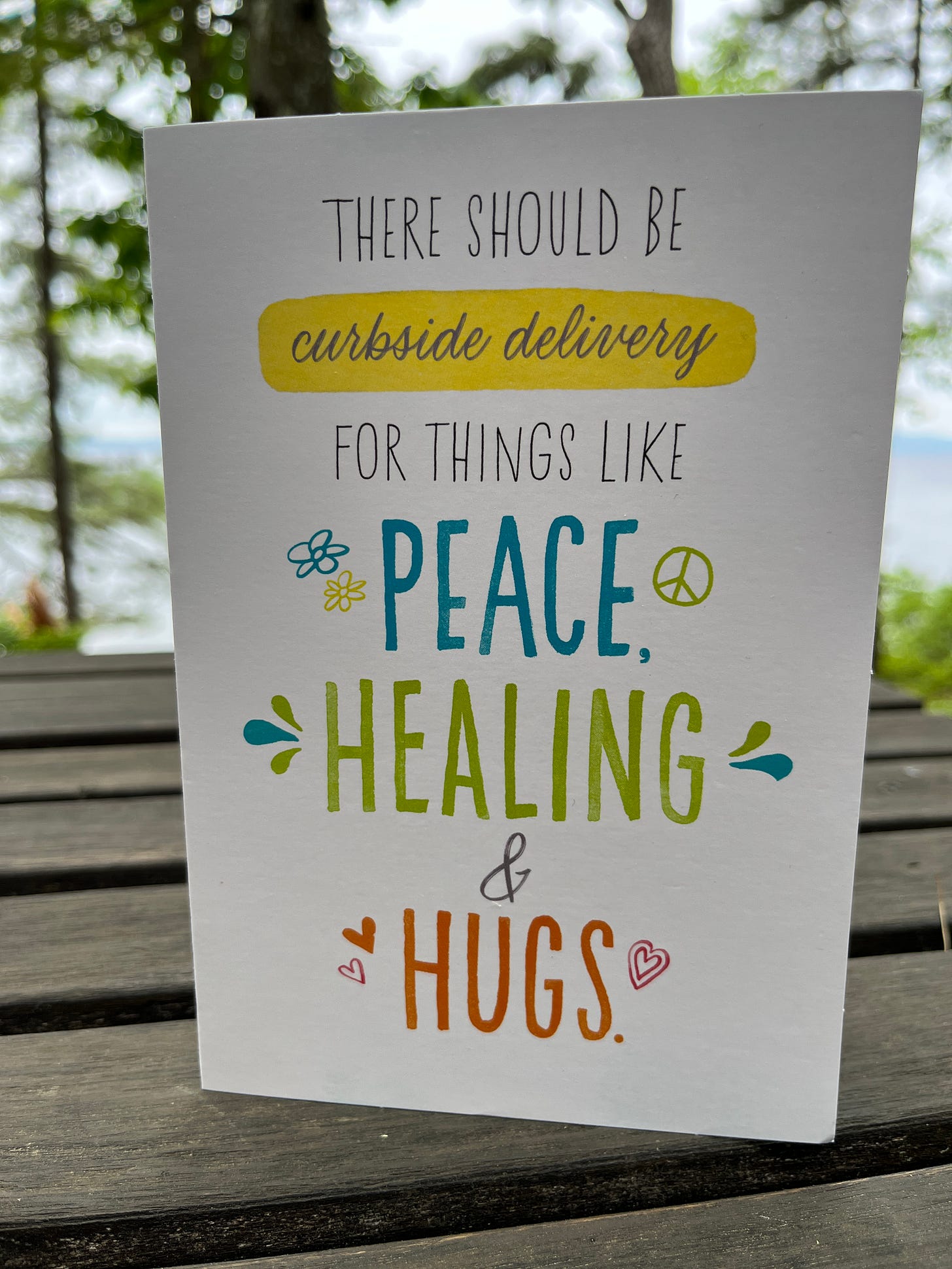When Annie and I were writing articles together about how we were handling her cancer diagnosis as a mother and daughter, (read them here) one of the topics we wanted to cover was how to respond to the people who said things that were just a little bit inappropriate. Or downright dumb. Our working title was something like, “Please don’t make me help you make your discomfort with my cancer more comfortable.” You can tell from the title alone we were having some trouble with it. Because we knew that the people who said things like, “I hope you get better soon” were genuinely at a loss of knowing what to say.
But still…isn’t it hard enough to deal with cancer—and now for me, Annie’s death--without having to help others out of their discomfort about knowing how to express their own feelings?
However, both Annie and I truly knew that, for many people, they were doing the best they could. We had trouble putting that particular article together because we felt a lot of sympathy for them. Each of us had people in our lives who had said something really insensitive or just stayed quiet entirely. Knowing that discomfort and probably fear were at the root of these actions didn’t always help us though, and the intent for our article was to acknowledge that it was a thing that happened. And not just to us—I’m pretty sure it’s a human condition, so no human is exempt from the sheer clumsiness of listening to a botched, and possibly painful, statement of sympathy from an equally discomfited friend or family member whose only wish is to simply say a few words and then disappear on the spot.
Our goal was not to call anyone out—because we understood. We wanted to start a conversation about the issue; if we talked about it, maybe it would help people figure out how to respond to their friends and loved ones undergoing a tragedy or crisis in a way that reflected their actual care for them. Because it’s hard to know what to say. It’s not like either Annie and I were experts on the topic—I know I definitely have sputtered out a lame, “I wish I could do something…” or “I hope you’re feeling better…” in my lifetime. I’ve replaced those useless phrases with something like, “I don’t know what to say, but I’m right here with you.” And of course there’s always the old, “If you don’t have anything nice to say, don’t say anything at all.” We won’t know if what we say is nice or not until we say it, but the point is that it’s mostly presence and not words that are required.
Because I realized something recently that I think Annie would have understood, too: I’d been so focused (and kind of judgy) on the ones who bungled their words or stayed away completely, that I had totally disregarded the people who were right in front of me. The ones who sought me out and listened and mustered up as many words as they could. Or just stood there as I cried or ranted and then hugged me or gave me a glass of water.
They also must have felt discomfort because of course it’s uncomfortable. And I have to remember to acknowledge that. Being present for the pain of others is scary and makes us feel helpless. I feel like that was what Annie and I were trying to get to—writing about it to try and take the stigma away from it. Giving in to discomfort is silencing and deserting…but sitting with it, acknowledging it and acting in spite of it, is soothing and embracing.
I don’t know if I’ve heard the perfect words yet, I definitely haven’t uttered them to another. What I think I do know is that the opposite of discomfort isn’t comfort—sad and tragic occasions aren’t designed for comfort. But as many times as I’ve fumbled over my tongue, have been unsure of my next step or stuck my foot squarely in my mouth, I have learned that I can be comfortable with my discomfort.
At this point in my life, I have to be.



You're so right about the discomfort one feels in these situations - extending a virtual hug to you.
Cindy—This is wonderful and sure to be helpful both for those who are uncomfortable and don’t know what to say, and those who are on the other side of needing the presence of caring people.
In my work, I’ve often thought about these things and realized there’s nothing perfect I can say, so I allow my heart, presence, and ears to lead the way. I plan to write about the uselessness of platitudes, which I’m sure are designed to give comfort only to the person who says them. My work has also taught me that when we feel uncomfortable in the presence of another person’s pain, it’s because we’re focused on ourselves and not the one who needs to be heard.
Please keep sharing. I’m listening.
Sending love.